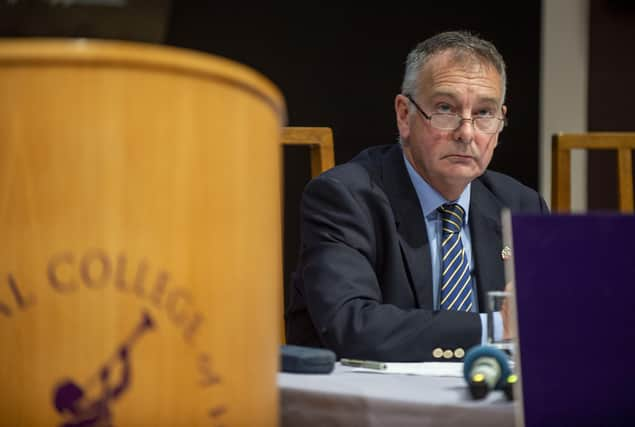Data conference: Energy Futures panel


Underhill, director of the university’s Centre for Energy Transition, was speaking as part of an Energy Futures panel session at The Scotsman’s Data Futures, AI Futures conference held in Edinburgh last week.
The professor said that when it comes to critically evaluating potential sites for the energy transition to renewables, there is a need for interested parties to be able to raise issues and identify potential red flags.
Advertisement
Hide AdAdvertisement
Hide AdThere can be competing demands over the use of individual sites with the potential for renewable energy, raising the issue of who is there to arbitrate.
He said: “There are so many stakeholders and regulators and technologies in this area, I actually think that there is a need for that overarching umbrella decision maker to become a referee, if you like.”
During the session, Underhill talked about how the University of Aberdeen is building on its traditional strengths to tackle global challenges and accelerate the energy transition. He assured the panel that there is a focus on energy security, affordability and environmental sustainability, including taking the needs of communities on board to ensure a “just transition” can be achieved.
He added: “Data is vital to make informed decisions that address the challenges.”
Another panel member, Jess Steinemann of Energy Systems Catapult, said that given the complicated nature of energy and sub-systems, data scientists often get involved in projects to gather real-world evidence, including how people consume energy.
She added that to “ensure subsystems can work in sync in future we need as much data as evidence as is possible to make decisions wisely”, calling for more open data.
In terms of data being available to make the best decisions, Underhill said the UK is leading the way. He pointed to commitment from the likes of the Crown Estate to ensure data is in the public domain. But, he said, the situation is not perfect and there is a need to see additional data sets included in what is available.
He continued: “We are in a far better position than many countries that treat data as a state secret… the UK is one of the best in class.”
Advertisement
Hide AdAdvertisement
Hide AdJohn Seabourn of the North Sea Transition Authority (NSTA) also addressed the panel, saying that people are welcome to visit the regulator’s website to see the information it has available, and explained how different regulators work together. He said there is an “open data agenda” and the industry is transparent about such things as the location of fields.
Talking more about the work and role of the NSTA, Seabourn commented on the level of analysis it carries out on the industry. He said firms are willing to share information that will be used to make future decisions and effect change where required. He added there is now more openness and collaboration in the industry than there has been in the past.
Looking ahead, panel members believe there are many ways in which data can be used to make positive changes to support a just transition to renewable energy, including the critical evaluation of the best sites.